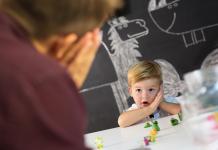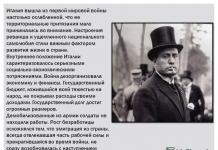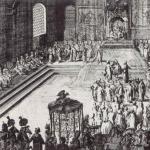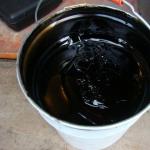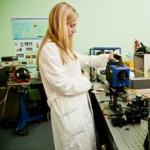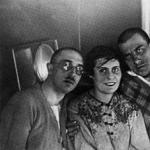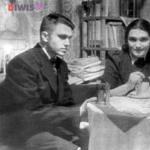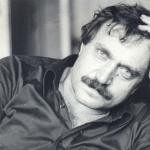According to the Federal Statistics Service of the Russian Federation, as of January 1, 2018, there were 651,000 disabled people under the age of 18 living in Russia, while 4 years ago there were almost 70,000 fewer of them (582,000). The number of children with disabilities who have not received a disability is even greater. Therefore, now correctional pedagogy is acquiring special social significance. Our center offers a wide range of retraining and advanced training courses for education workers, which help children with disabilities adapt to life in modern society. We invite you to get to know the specialty of a correctional teacher better.
What is the difference between a special education teacher and a regular teacher or educator?
Like any educator, a correctional teacher is involved in teaching and raising children, but “special” children, that is, those suffering from congenital and acquired health disorders. Accordingly, the educational process is built taking into account the problems of students and is aimed not only at developing certain knowledge and skills in them, but also at correcting physical/mental defects. A correctional teacher works much more on the socialization and adaptation of children in modern society than a teacher who works with healthy students.
A specialist who chooses this profession will need to work with children who have:
- speech disorders;
- hearing impairment;
- visual impairment;
- problems with intellectual development;
- problems with the musculoskeletal system;
- problems with the emotional-volitional sphere.
Complex disorders are often encountered in children with disabilities. For example, with cerebral palsy, the musculoskeletal system, speech, vision, and hearing may suffer.
Which educational institutions require special education teachers?
First of all, such specialists are required in correctional educational institutions. However, increasingly, inclusive education programs are being implemented in general education kindergartens and schools, in which healthy children and children with disabilities study together. Such educational organizations open positions for teachers-defectologists, speech therapists, tutors, etc.
Persons who have received an education in the specialty “Correctional Pedagogy” are in demand in medical institutions (clinics, rehabilitation centers, sanatoriums, etc.), in private development centers and other organizations.
Can a special education teacher conduct private practice?
 The spread of inclusive education makes tutors in demand as specialists, who can work as correctional teachers. They provide individual support for children with disabilities in the process of receiving preschool and school education.
The spread of inclusive education makes tutors in demand as specialists, who can work as correctional teachers. They provide individual support for children with disabilities in the process of receiving preschool and school education.
Consultations and individual lessons with correctional teachers outside the main educational process are in demand. For example, parents can refer their child to a speech therapist for personal lessons on sound production, articulatory gymnastics, logomassage, etc.
Is it necessary to obtain a second higher education to become a special education teacher?
To obtain an education in the field of correctional pedagogy at a university, it will take several years. But those who already have a higher or secondary vocational education have the opportunity to save time and money - undergo professional retraining. It takes on average 1-1.5 years (or even less - for example, only 256 hours when studying at our Center as a teacher) and costs several times less than a second higher education. At the same time, with a diploma from a licensed center of additional education on retraining, you will be hired for work in both private and government organizations.
Can everyone enroll in retraining courses for special education teachers?
The main requirement for admission to the courses is the presence/receipt of higher or secondary vocational education. You simply present your university or college diploma to the admissions committee, pay the fee, and begin classes in your chosen program in the field of correctional pedagogy.
Some programs have special requirements for the basic training profile. For example, you need to have a university diploma in a pedagogical or psychological specialty. But if you do not have the necessary education, you can undergo retraining in pedagogy, defectology, psychology in the amount of 500 hours, and after that enroll in courses for special education teachers.
Many people believe that correctional pedagogy is pedagogy aimed at correcting children with difficult behavior. People call them “neglected” or children from dysfunctional families. But correctional pedagogy in primary education has long since acquired other directions. But let's figure it out.
Who is a special education teacher?
The specialty “Correctional Pedagogy in Primary Education” is aimed at helping children with disabilities and intellectual disabilities learn. These can be either congenital or acquired diseases.
Such children are trained in a specific correctional institution, where correctional teachers work. They weaken or replace developmental deficiencies.
The duties of a correctional teacher include:
- Carry out pedagogical control.
- Plan the goals and objectives of lessons, focusing on each child.
- Evaluate the process and results of activities.
- Conduct pedagogical diagnostics.
- Work with children's parents.
- Select a program taking into account the characteristics of the class.
- Create a subject-development environment in the office.
- Write reports for each child.

Who does the correctional teacher work with?
Answering this question, it is easier to say with whom the correctional teacher does not work. Children with autism, Down syndrome, attention deficit hyperactivity disorder, musculoskeletal system disorders, as well as visually impaired and hearing impaired. Therefore, when going to study for the specialty “Correctional Pedagogy in Primary Education,” people often receive several additional specialties. This profession allows you to constantly be in the process of learning, since there are so many branches of correctional pedagogy.

Where to study?
They study to become a special education teacher in technical schools, colleges and universities. If a specialist already has one, he can take courses to improve his qualifications. When choosing such courses, focus not on the price, but on the fact that you are taught to study according to the Federal State Educational Standard.
Correctional pedagogy in primary education is not the easiest profession. It requires not only a certain character, but also a sense of calling to the profession. And although before going to college or university, teenagers do not think about how their professional life will develop in the future, there are a number of scientific books that can help determine their choice of profession.
Where to start studying?

In it you can find information:
- About the basics of pedagogy and its specific field - special (correctional) pedagogy.
- About school maladjustment.
- About educational relations and the organization of correctional and developmental education.
- About pedagogical diagnostics.
- About the main directions of correctional pedagogy.
- On the development and improvement of spatial concepts, coordination of movements of the hands and fingers, visual perception.
The book consists of a whole introductory course, which, in addition to the above, talks about everything that a specialist may encounter.
Methods in correctional pedagogy
Corrective pedagogy in primary education is based on several specific methods.
- The conversation method or the method of collecting psychological and pedagogical data through communication between the teacher and the child. At the same time, much depends on the teacher’s ability to create an emotional and psychological atmosphere suitable for the child. During the conversation, the teacher not only interprets words, but also non-verbal signs. This method in correctional pedagogy is suitable only for children with developed speech functions.
- This method is divided into several different methods. You can observe the child by being involved in the process of his activity, or vice versa, standing on the sidelines. You can do this openly or, on the contrary, closed, using the Gisella mirror. Typically, the teacher plans his observations, writes down feelings and thoughts, and then analyzes the material received. However, there are also disadvantages to this method - each person interprets what he sees according to his own standards.
- Questionnaire method. The most standard and widespread method. Children in primary school are not always able to fill out the questionnaire, so it is not suitable for every type of institution and not every child.
- Method of pedagogical experiment. This method uses personal data, conversations, observations and much more. Establishing connections and patterns is the main goal of this method.
- Method and anamnestic information. With this method, a patient is examined and a diagnosis is made based on his medical history. The study also includes looking at crafts, school notebooks, and much more that the child has made.
- Method of studying documentation. Each school maintains a specific file. It is from this that correctional teachers can, after analyzing, draw conclusions.
These are the simplest and most well-known methods. However, there are also more serious methods, such as PMPK (psychological-medical-pedagogical council), where absolutely all information received by psychologists, speech therapists, parents, social workers, special educators and doctors is collected and processed. The purpose of this method is to draw up an individual development plan for the child.

Some statistics
Despite the demand for the specialty “Correctional pedagogy in primary education,” the salary is quite low in the regions of Russia. The situation has worsened with the crisis. Based on statistical data, salaries in Moscow fell from 40 to 30 thousand rubles. But the demand for special education teachers has not fallen, and there are quite a lot of vacancies. The same demand can be observed in the Leningrad region and Altai region.
The highest salaries are in the Moscow region and the Republic of Tatarstan - 32.5 thousand rubles each. Slightly lower is the Leningrad region with a salary of 30 thousand rubles. And the top 5 are closed by the Astrakhan and Kemerovo regions with wages of 18 and 16 thousand, respectively.
However, when choosing whether to enter a university with a degree in “Correctional Pedagogy in Primary Education” or not, you should focus not only on salary and demand in your region - what’s more important is whether you want to devote your life to this!
Being a children's teacher is a special profession, calling and gift. But correctional pedagogy is rightfully considered the “aerobatics” of pedagogy all over the world. There are very few specialists in this field of pedagogy! Graduates of the specialty, even without work experience, are in demand in correctional schools of all types, classes of correctional and developmental education. The salary of a primary school teacher in a public school is 25-40 thousand rubles, depending on the teaching load, in a private school - up to 50 thousand.
This is an extremely delicate area of training and education, in which not everyone, even a very good teacher, is capable of becoming a real specialist. These people are given the right and they are also entrusted with a gigantic responsibility, without hurting the defenseless, fragile and vulnerable child’s soul, to teach a child “not like everyone else” to live in our very difficult world.
A primary school teacher must be able to do many things: listen, speak, sing, dance, draw. But the most important thing: he should be interested in children. This must be a person with a generous soul and heart. Shota Rustaveli wrote: “What you hid is lost, what you gave away is yours.” The science of giving is a complex science; one learns it throughout one’s life. Without this, it is impossible to be a teacher, and even more so as a primary school teacher of compensatory and correctional-developmental education for children with disorders of psychophysical development, since these children respond only to sincerity and instantly sense any falsehood.
This specialty is not for everyone, but the specialty is extremely necessary and in demand! The specialty “Correctional Pedagogy in Primary Education” is aimed at helping children with disabilities and intellectual disabilities learn. These can be either congenital or acquired diseases. Such children are trained in a specific correctional institution, where correctional teachers work. Here, in addition to basic pedagogical knowledge, you will need an individual approach to each student, taking into account all his characteristics. This is work with “special” children who have physical or mental problems. The tasks of a correctional teacher include: Carry out pedagogical control. Plan the goals and objectives of lessons, focusing on each child. Evaluate the process and results of activities. Conduct pedagogical diagnostics. Work with children's parents. Select a program taking into account the characteristics of the class. Create a subject-development environment in the office. Write reports for each child.
Graduate qualification: primary school teacher and primary school teacher of compensatory and correctional and developmental education. Related professions: teacher, speech pathologist, tutor, general education teacher, speech therapist. Areas of possible employment: state and non-state school departments of general education organizations, special (correctional) educational organizations, boarding schools, children's health camps, children's clubs, child development centers, social centers.
Object, subject, tasks of correctional pedagogy;
The place of correctional pedagogy in the system of scientific and pedagogical knowledge;
Basic concepts and terms of correctional pedagogy;
Prospects and main directions in the development of correctional pedagogy;
The student must be able to:
Operate with the basic concepts and terms of correctional pedagogy;
Use psychological and pedagogical knowledge in future teaching activities;
Correctional and special pedagogy as an integral part of pedagogy and its problem field.
Object, subject, goals and objectives of the course of correctional pedagogy.
Basic concepts and terms of correctional pedagogy.
The relationship between correctional pedagogy and other branches of knowledge.
Basic Concepts : habilitation, adaptation, anomaly, education, deviation, disadaptation, deprivation, defect, defectology, compensation, correctional pedagogy, correction, speech therapy, training, oligophrenopedagogy, development, rehabilitation, readaptation, deaf pedagogy, typhlopedagogy.
Leading ideas:
Within the framework of an integral pedagogical process, correction acts as a set of correctional-educational and correctional-developmental activities.
The expediency and necessity of carrying out correctional work in the educational system are determined both by external modern socio-pedagogical circumstances and by the peculiarities of the internal mental processes occurring in the spiritual world of the child, his awareness, and attitude towards society.
Practical lesson:
Basic concepts and terms of correctional pedagogy. (work with reference materials on correctional pedagogy)
Independent work of students:
Based on work with reference material, fill out a dictionary-reference book of basic concepts and terms (suggested by the teacher).
Literature for independent work of students:
Borodulina, S.Yu. Corrective pedagogy. [Text] Rostov n/d., 2004.-p. 10-16
Goneev, A.D. and others. Fundamentals of correctional pedagogy. [Text] M., 1999. - p.5-13
Corrective pedagogy in primary education [Text] Ed. G.F. Kumarina. – M., 2003 – p.5-17
Dictionary of correctional pedagogy and special psychology [Text] Comp. N.V. Novotortseva - Yaroslavl, 1999.
According to domestic and foreign scientists, the number of children with deviations in psychophysical development and behavior is steadily increasing. This is facilitated by a number of pathological factors of endogenous (internal) and exogenous (external) origin: genetic abnormalities, burdened heredity, physical and mental trauma, somatic and infectious diseases, destabilization of society and individual families, the absence in some cases of normal environmental, economic, hygienic conditions for future mothers and children, disadvantages of school and family education and much more.
Moreover, if at the initial stages of development of a problem child the main obstacle to his education and upbringing is a primary defect, then in the absence of the necessary correctional work, secondary deviations appear that interfere with the child’s social adaptation. In this regard, in modern correctional pedagogy, the position on the need for early detection of deviations in the development of children has been established. Their correct diagnosis and provision of necessary psychological and pedagogical assistance to children.
In order to successfully solve these problems in the educational process of the college, in accordance with the State Standard of Secondary Professional Education, the course “Correctional and Special Pedagogy” has been introduced, which will help students navigate the most significant defectological problems and prepare them to work with children with developmental and behavioral disorders, to effectively training and education.
This training manual provides materials that will help prepare future teachers for their effective teaching and education. This manual is intended to acquaint future teachers with the peculiarities of organizing the construction of an educational process for abnormal children, both in special educational institutions and in a mass secondary school; show what social and pedagogical problems children with developmental and behavioral disorders face; to reveal those methods, methods, paths and means by which the problems of abnormal schoolchildren can be resolved, and their pedagogical neglect and social maladaptation can be prevented.
The textbook analyzes scientific research in the field of correctional and special pedagogy, presented in the works of such famous domestic speech pathologists as L.S. Vygotsky, M.S. Pevzner, T.A. Vlasova, B.P. Puzanov, A.D. Goneev et al.
As a scientific concept, correctional pedagogy acquired official status quite recently. For a long time in our country the term “defectology” was used. With the development of international relations, there is a tendency towards the unification of special terminology; In this regard, the term “corrective pedagogy” is more often used.
Purpose Corrective pedagogy is the identification and overcoming (correction) of deficiencies in the development of the child’s personality, the determination of those conditions of education and upbringing that most adequately take into account the developmental characteristics of an anomalous child and maximally contribute to overcoming his deviations.
Raising and teaching children with disabilities and health problems and deviant behavior is the most important task of correctional and special pedagogy.
Object correctional and special pedagogy is the personality of a child who has minor deviations in psychophysical development or behavior that complicate his adequate socialization and school adaptation - children with 4 “Ds”.
Children with a less pronounced defect.
Children who suffered deprivation at an early age (lat. Denrivatio - deprivation)
Because of this, those experiencing maladjustment
And showing deviation (deviation) in behavior.
Subject Corrective pedagogy is the process of differentiating the training, education and development of children with developmental deficiencies and behavioral deviations, determining the optimal ways aimed at timely detection, prevention, and overcoming deviations in the development and behavior of these children.
The teacher needs to know:
The nature and nature of deviations present in children, types, causes;
Features of their manifestations;
Methods and techniques for their correction and compensation.
Knowledge of the basics of correctional pedagogy will help to find ways to overcome difficulties in raising a child both in conditions of mass education and in special correctional educational institutions.
Correctional pedagogy as one of the branches of pedagogical science is closely interconnected with the entire block of psychological, pedagogical and special disciplines. Correction, being an integral part of a unified pedagogical process, relying on it, has the closest relationship with general pedagogy, which determines the goals, objectives, content, forms and methods of teaching and educating the younger generation, the diversified development of personality development.
Corrective pedagogy (defectology) includes various branches of special pedagogy and psychology: deaf pedagogy and deaf psychology (study the development, training and education of children with hearing impairment), typhlopedagogy and typhlopsychology (study the development, training and education of mentally retarded children), speech therapy and speech psychology disorders (study the development, training and education of children with speech disorders); branches of special pedagogy and psychology that study motor disorders, complex defects (for example, deaf-blindness), etc.
At the same time, using the entire scientific arsenal of general pedagogy, its categorical system, principles, methods and forms of organizing the educational process, advanced pedagogical experience, correctional pedagogy makes significant amendments to the methodology and technology of applying pedagogical knowledge, to the content of teaching and raising children and adolescents in accordance with the nature and nature of their defect, develops its own techniques and methods of correctional influence in various branches of special pedagogy (typhlo-, deaf-, oligophrenopedagogy, speech therapy, etc.)
At the same time, children with developmental disabilities are characterized by mental features that cannot always be found in normal children: delayed general physical development, slowness, weakness and inactivity of nervous processes, underdeveloped sensory analyzers, incomplete (fragmented) perception of the surrounding world, etc.
This dialectical unity of the general and the special, the ordinary and the unusual in the psychological state of children and adolescents leads to a statement of the relationship between correctional pedagogy and philosophy. Painstaking correctional work, everyday pedagogical influence on a defect in mental or physical development leads to the manifestation of the philosophical pattern of the transition from quantity to quality, to a decrease in deviation or compensation for a physical defect due to the activation of the activity of healthy organs or those with a minor anomaly.
In correctional pedagogy, there is a close relationship with social pedagogy, the subject of which is the study of the educational forces of society and ways of their actualization, ways of integrating the capabilities of public, state and private organizations in order to create conditions for the development and positive self-realization of a person.
There is a connection with social psychology in that it studies the patterns of behavior and activity of people, determined by the fact of their inclusion in social groups, as well as the versatile psychological characteristics of these groups themselves.
Sociology helps in studying the patterns of formation of the functioning and development of society as a whole, social relations and social communities.
Correctional pedagogical activities will be effective when they are based on knowledge in the field of child psychiatry, neuropathology, pathophysiology, and immunology. As well as ophthalmology, otolaryngology and other medical sciences.
From a medical point of view, the basis for correctional pedagogy is pediatrics, which studies the child’s health and the processes of its development, physiology, pathology, methods of prevention and treatment of diseases that threaten its harmonious development or pose a danger to the life of the child’s body.
The source of many deviations in the development of a child is the state of his nervous system, so the teacher must have knowledge of neurology - the science of the structure and functions of the human nervous system. And in order to correlate the norm and pathology in the state of the nervous system, a relationship with neuropathology is required - a field of clinical medicine that studies the disease of the nervous system and its role in the pathology of other organs and systems.
Psychiatry, which studies issues of etiology, pathogenesis, pathomorphology, diagnosis, therapy and prevention of mental illness, will help correctional pedagogy find the right direction and choose the right solution when working with children and adolescents with deviations in psychological development.
When correcting and rehabilitating impaired mental functions, one cannot do without systematic mental influences on a person, i.e. without psychotherapy, which acts as a complex of mental influences on the patient, aimed at increasing his strength in the fight against the disease, at creating a protective and restorative regime that excludes mental trauma.
Ophthalmology determines the nature of the brain disease, its course, the state of visual functions. Otolaryngology provides diagnosis of auditory pathology and therapeutic measures or diseases of the hearing organs.
A special education teacher (defectologist) is a specialist who works with children who have problems (special features) in physical and mental development.
The main areas of activity of a teacher-defectologist:
- diagnosing the problem;
- correctional and developmental classes taking into account the age, individual and psychological characteristics of your child;
- assistance in raising a child;
- social adaptation (including introduction to the group).
This profession is based on an understanding of the uniqueness of children with special needs, the desire for their development and socialization. Having special knowledge, a special education teacher helps parents cope with difficulties in raising and educating their children.
Unfortunately, in recent years the number of children with certain deviations from normal development. Parents do not always have enough knowledge to notice problems in their baby in time. During routine medical examinations, many developmental disorders in children also often remain undetected.
As a result, parents begin to sound the alarm when the child has already grown up and the problems are obvious. Most often this is discovered upon entering kindergarten or school. That’s when they begin to work hard with a speech pathologist, speech therapist and psychologist, but it can be very difficult, sometimes almost impossible, to catch up. After all, it is up to 3-5 years of age that the compensatory capabilities of the brain are very great. If corrective action is started at an early age, the problems can be solved completely, or at least many possible secondary deviations can be avoided.
Opportunities for government support for families with children with special needs are limited. You often have to wait a long time for your turn to see a specialist, wasting valuable time.
Our center specialists They work with children from 8-10 months. A specially prepared environment is organized for classes, equipped with a huge amount of educational materials.
Teachers work closely with families. For the youngest children, parents are present at classes. This allows you to ask all your questions and track your child’s progress and successes under the guidance of a specialist. In addition, the work of a defectologist special education teacher is aimed at teaching parents the basic techniques necessary for independent study with their child at home. Only in this case is it possible to achieve significant results.
